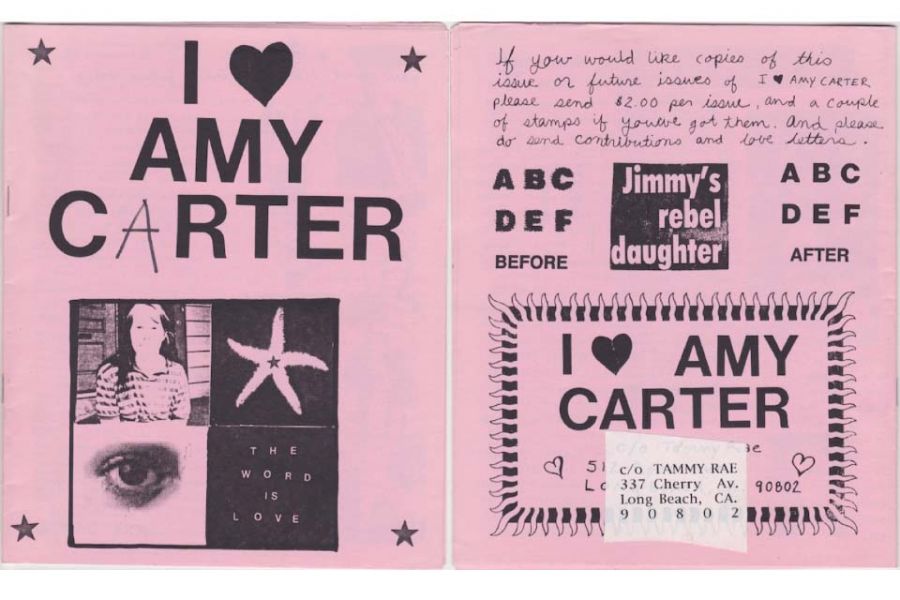Annah-Marie Rostowsky, M.A. ’14, probably knows more about Riot Grrrl culture than most cultural critics.
For those of you who missed it, Riot Grrrl was an underground feminist hardcore punk movement that started in the Pacific Northwest and Washington, D.C., during the third wave of U.S. feminism in the 1990s. Riot Grrrl bands such as Bikini Kill and the Butchies addressed issues such as sexual and domestic violence, sexism, patriarchy, queer identities, and female empowerment.
Rostowsky completed her master’s degree in the School of Art’s visual culture program in August 2014. She won the Fisher Thesis Award for the College of Fine Arts that year.
Rostowsky’s thesis, “Tammy Rae Carland’s Queer Riot Grrrl Zine – I ♥ Amy Carter: A World of Public Intimacy,” focuses on this zine in the context of the greater zine culture of the 90s, U.S. feminisms, and the Queercore and the Riot Grrrl movements. The foundation of her award-winning thesis came out of her trip to the Riot Grrrl Collection at New York University’s Fales Library and Special Collections.
Her thesis demonstrates the historical and cultural significance of feminist zines during a period when feminists were still working through resistant representations of women and girls in the U.S. media. It offers is a critical analysis of sexuality, gender, race and class that looks at both the negative and positive aspects of public intimacy.
Her research goal was “to get readers to think critically about this controversial group of women and the zines they produced.” Because zines are self-published do-it-yourself projects they are usually dismissed as historically insignificant. But these productions are actually valuable artifacts of Riot Grrrl culture!
“(They are) significant and can add to our understanding of the historical period, and women’s resistance during that time,” Rostowsky said.
Feminist zines are marginalized because they do not align with normativity and, especially, heteronormativity, according to Rostowsky. She also learned that the author’s efforts to “push cultural buttons” might have been necessary in order to make visible subcultures that have been erased or overshadowed during that time. Riot Grrrls purposely pushed buttons to get people to pay attention to various social injustices, and to inspire change.
Currently, Rostowsky is considering getting her master’s degree in library science. Her passion for archiving artifacts and oral histories of forgotten movements and marginalized peoples has challenged her to look beyond the lessons that mainstream history teaches us. She aspires to become a librarian or archivist for feminist and social justice movements because she feels passionate about the importance of “preserving the work and lived experiences of marginalized groups.”

